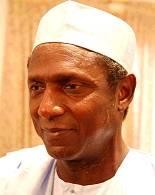It would be simple to lay the blame for last week's riots in Jos, Nigeria, at the doorstep of ethno-religious rivalries. This line of analysis always makes sense to outside observers and conforms to the meta-narrative of the "clash of civilizations." But in Nigeria, nothing is ever that simple. In a move designed to shift the blame for the riots, Hon. Jonah Jang, the governor of Plateau State (where Jos is located), has been issuing statements to the effect that subversive elements from neighboring Chad and Niger were the main perpetrators of last week's violence, which killed almost 500 people and displaced thousands. The allegations, rejected by the central government in Abuja, contradict the generally accepted explanation that election irregularities and unresolved social and economic contradictions were the culprit. This is not the first time that this picturesque city lying along the "middle-belt" of Nigeria, along the ethno-religious fault line between the Muslim north and the Christian south, has witnessed this kind of violence. In 2001, hundreds died and thousands were displaced after what began as a street-level confrontation between a Christian woman and a Muslim man -- who objected to her walking around his neighborhood on a prayer day -- escalated into bands of Christian and Islamic youth roaming the streets and engaging in indiscriminate beatings, burning and looting.
Nigeria’s Enduring Fault Line

